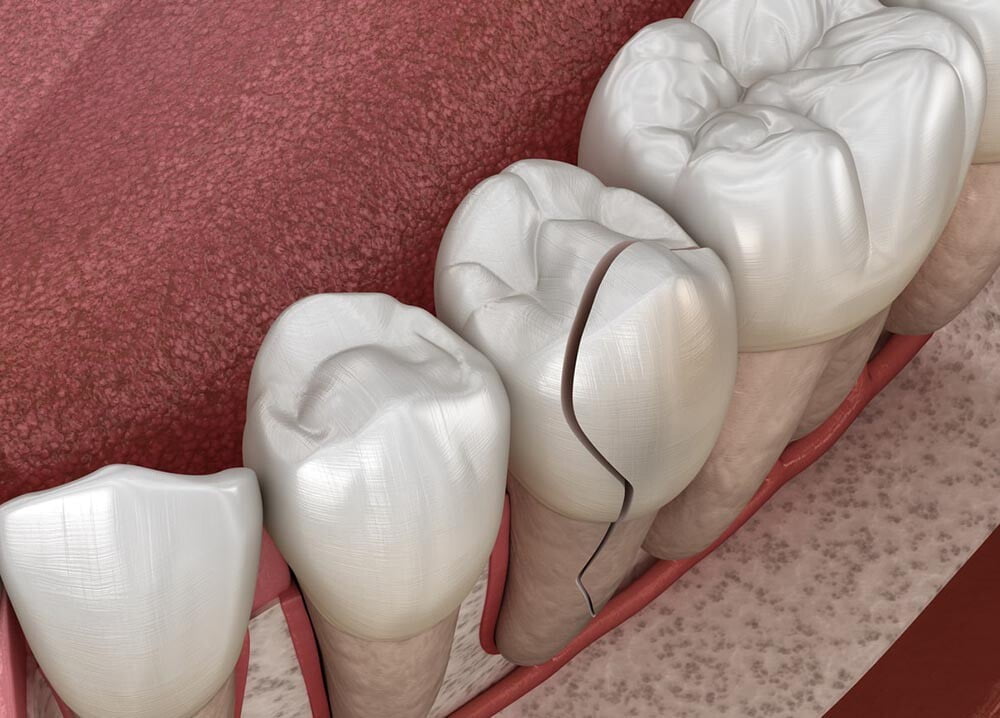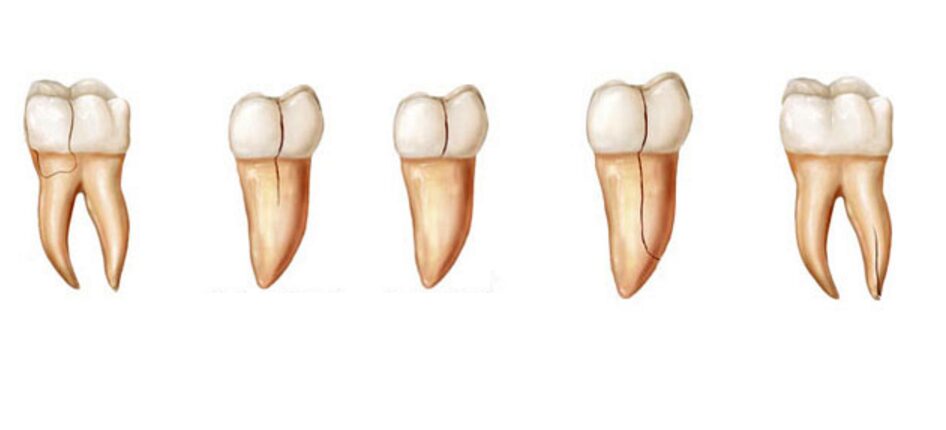
Cracked teeth are more common than you might think and can cause significant pain and discomfort if left untreated. In today’s dental blog, we’ll explore everything you need to know about cracked tooth emergencies, including the causes, symptoms, treatment options, repair costs, and quick actions to take if you suspect you have a cracked tooth.
Understanding Cracked Teeth:
A cracked tooth can result from various factors, including:
- Trauma or injury to the mouth
- Chewing hard foods or objects
- Teeth grinding (bruxism)
- Weakening of the tooth due to large fillings or root canal treatment
- Temperature changes in the mouth (such as eating hot and cold foods)
Symptoms of a Cracked Tooth:
The signs and symptoms of a cracked tooth can vary depending on the severity and location of the crack. Common symptoms include:
- Sharp pain when biting or chewing.
- Sensitivity to hot or cold temperatures
- Pain that comes and goes
- Swelling of the gums around the affected tooth
- Difficulty pinpointing the source of the pain.
Quick Actions to Take:
If you suspect you have a cracked tooth, it’s essential to take quick action to prevent further damage and alleviate discomfort. Here’s what you can do:
- Rinse Your Mouth: Rinse your mouth with warm water to clean the area and remove any food particles or debris.
- Apply Cold Compress: Apply a cold compress to the outside of your cheek near the affected tooth to reduce swelling and alleviate pain.
- Avoid Chewing on the Affected Side: To prevent further damage to the cracked tooth, avoid chewing on that side of your mouth and stick to soft foods.
- Take Over-the-Counter Pain Medication: Over-the-counter pain relievers like ibuprofen or acetaminophen can help alleviate pain and inflammation. Follow the recommended dosage instructions.
- See Your Dentist: Contact your dentist as soon as possible to schedule an emergency appointment. Prompt treatment is essential to prevent the crack from worsening and requiring more extensive treatment.
Treatment Options and Repair Costs:
The treatment for a cracked tooth will depend on the severity of the crack and its location. Common treatment options include:
- Dental bonding or filling for minor cracks.
- Dental crown placement for more significant cracks or fractures
- Root canal treatment if the crack extends into the tooth’s pulp chamber.
- Tooth extraction in severe cases where the tooth cannot be saved.
Prevention is Key:
While cracked teeth can sometimes be unavoidable, there are steps you can take to reduce your risk:
- Avoid chewing on hard objects or foods.
- Wear a mouthguard if you grind your teeth at night.
- Practice good oral hygiene, including regular brushing and flossing.
- Visit your dentist regularly for check-ups and cleanings.
By taking proactive steps to protect your teeth and seeking prompt treatment for cracked tooth emergencies, you can preserve your oral health and avoid costly and painful complications down the road. If you’re experiencing symptoms of a cracked tooth, don’t hesitate to contact our dental team for expert care and personalized treatment options. Your smile deserves the best care possible!

